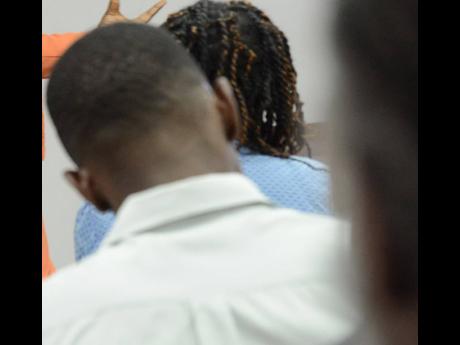Jamaican students judged ‘below average’
International assessment finds island’s 15-year-olds not up to par with those in other nations
An international assessment of Jamaican 15-year-olds in reading, mathematics and science has confirmed recent damning findings on the local education system while highlighting how far behind the students are compared with some from the most...
An international assessment of Jamaican 15-year-olds in reading, mathematics and science has confirmed recent damning findings on the local education system while highlighting how far behind the students are compared with some from the most advanced countries in the world.
The assessment was done in 2022, as restrictions of the COVID-19 pandemic which exacerbated the failures in the Jamaican education system were lifted. The country is still reeling from that learning loss.
In the coming days, Education Minister Fayval Williams is expected to speak on the results of the Programme for International Student Assessment (PISA) conducted by the Organization for Economic Cooperation and Development (OECD) and published in December last year.
The tests explore how well students can solve complex problems, think critically and communicate effectively.
“This gives insights into how well education systems are preparing students for real-life challenges and future success,” the OECD said in its summary of Jamaican students’ performance.
A total of 3,873 Jamaican students from 147 schools completed the assessment in mathematics, reading and science.
The OECD said students in Jamaica scored less than the OECD average in mathematics, reading and science and that a smaller proportion of students in Jamaica, than on average across OECD countries, were top performers (level 5 or 6) in at least one subject.
At the same time, a smaller proportion of students than on average across OECD countries achieved a minimum level of proficiency (level 2 or higher) in all three subjects.
The results further showed that only 26 per cent of Jamaican students attained at least level 2 proficiency in mathematics, significantly less than the average of 69 per cent across participating countries.
This means that, at minimum, these students can interpret and recognise, without direct instructions, how a simple situation can be represented mathematically.
In comparison, more than 85 per cent of students in Singapore, China, Japan, and Estonia performed at this level or above.
The OECD said “almost” no students in Jamaica were top performers in mathematics, meaning that they attained level 5 or 6 in the PISA mathematics test. The average is nine per cent. However, it said six Asian countries and economies had the largest shares of students who did so.
“At these levels, students can model complex situations mathematically, and can select, compare and evaluate appropriate problem-solving strategies for dealing with them. Only in 16 out of 81 countries and economies participating in PISA 2022 did more than 10 per cent of students attain level 5 or 6 proficiency,” the OECD said.
In a better performance than mathematics, some 50 per cent of Jamaican students attained level 2 or higher in reading though this fell below the 74 per cent average.
This means that, at minimum, they can identify the main idea in a text of moderate length, find information based on explicit, though sometimes complex criteria, and can reflect on the purpose and form of texts when explicitly directed to do so.
The share of 15-year-old students who attained minimum levels of proficiency in reading (level 2 or higher) varied from 89 per cent in Singapore to eight per cent in Cambodia, the OECD said.
Only one per cent of Jamaican students scored at level 5 or higher in reading with the OECD average being seven per cent.
It said these students can comprehend lengthy texts, deal with concepts that are abstract or counterintuitive, and establish distinctions between fact and opinion, based on implicit cues pertaining to the content or source of the information.
Meanwhile, in science, 45 per cent of students in Jamaica attained level 2 or higher in science while the OECD average was 76 per cent.
At a minimum, the OECD said, these students can recognise the correct explanation for familiar scientific phenomena and can use such knowledge to identify, in simple cases, whether a conclusion is valid based on the data provided.
One per cent of Jamaican students were top performers in the subject, meaning that they were proficient at level 5 or 6. The OECD average is seven per cent. These students can creatively and autonomously apply their knowledge of and about science to a wide variety of situations, including unfamiliar ones.
Of note, the OECD said Jamaican students’ response rates were substantially lower than the target set by PISA technical standards.
“Based on the available information, it is not possible to exclude the possibility of bias; considering the analyses on student non-response conducted in other countries, the most likely direction of bias is upward,” the OECD said.
Girls outperformed boys in mathematics and in reading. Globally, in mathematics, boys outperformed girls in 40 countries and economies, girls outperformed boys in another 17 countries or economies, and no significant difference was found in the remaining 24.
In reading, girls, on average, scored above boys in 79 of the 81 participating countries.
The OECD results follows the findings of the Orlando Patterson commission report where a third of students continue to enter high school illiterate; 40 per cent don’t reach the standard for mastery of language arts at grade six; and 49 per cent don’t do so in mathematics.
On the same trajectory, less than 30 per cent of Jamaican students who sit the Caribbean Secondary Education Certificate (CSEC) exams pass five subjects, inclusive of maths and English, in a single sitting.

